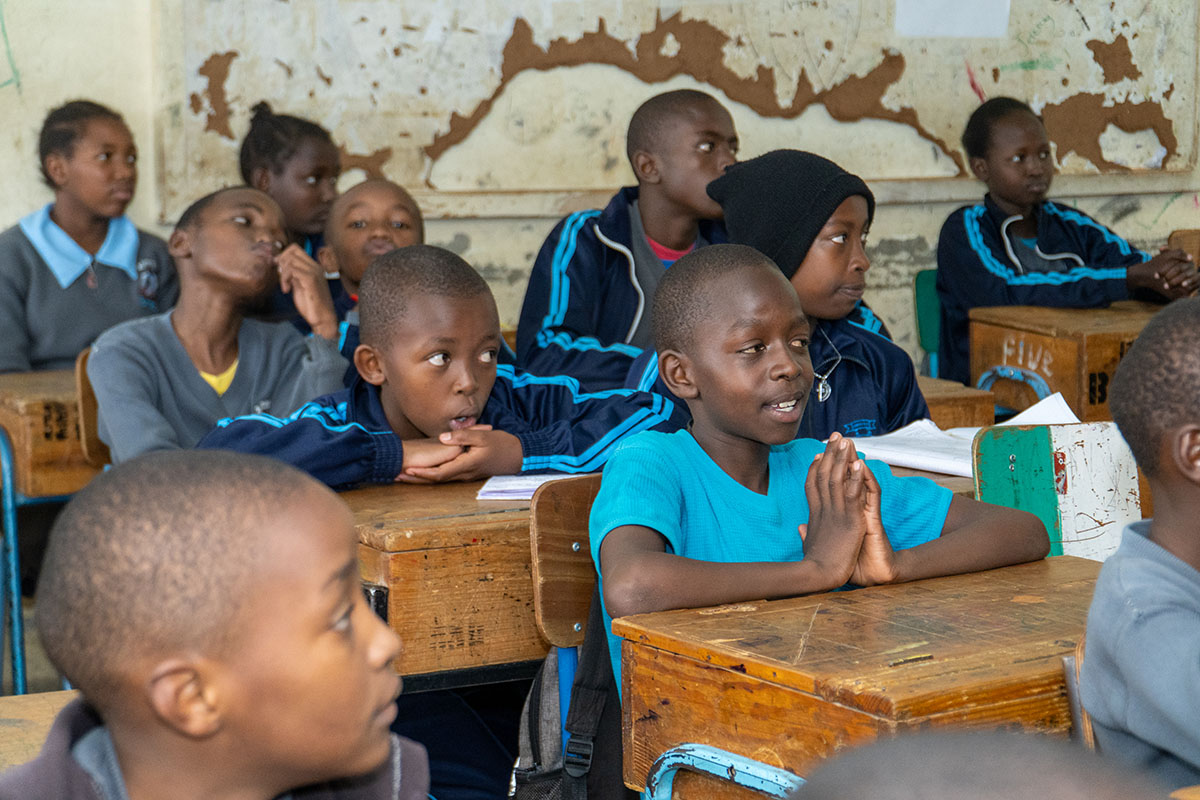Low-Tech Personalised Learning to Improve Girls’ Education in Kenya (led by M-Shule)
Country: Kenya | Topic Area: Personalised Learning and Girls’ Education
Quick links
Project summary
The use of low-tech SMS messaging for education has grown in recent years, particularly recently as a result of the Covid-19 pandemic. SMS can be cost-effective, while personalised learning can be beneficial for girls. However, the empirical evidence base for such interventions is currently extremely limited, and further research is needed to understand observations in practice and how they can be enhanced to further improve learning outcomes and the design of programmes. This study will use a rigorous, sequential mixed-methods research design undertaken in partnership with M-Shule, a Kenya-based SMS-based personalised learning platform.
Research questions
- How effective is this form of EdTech in improving learning outcomes?
- Do the experiences of girls and boys differ when taught through this form of EdTech, and why is this the case?
- How can messages be designed in order to further enhance girls’ learning outcomes and support caregivers?
- How cost-effective is this form of EdTech?
The voice behind the research
Discover evidence
Supporting equitable access to learning via SMS in Kenya: Impact on engagement and learning outcomes
Learners and caregivers barriers and attitudes to SMS-based mobile learning in Kenya
Messaging Apps, SMS, and Social Media: A Rapid Evidence Review
How can messaging apps, WhatsApp and SMS be used to support learning?
The Use of SMS and Other Mobile Phone-based Messaging to
Support Education at Scale: A Synthesis of Recent Evidence
EdTech and Girls Education in Low- and Middle-Income
Countries: Which Intervention Types Have the Greatest Impact
on Learning Outcomes for Girls?
A new research study on equity and SMS-based personalised learning in Kenya
Telephone Survey: Caregivers’ and Learners’ Perspectives on SMS for Education in Kenya
Inequalities in Girls’ Learning Opportunities via EdTech: Addressing the Challenge of Covid-19
Study contacts
- Dr Katy Jordan, Principal Investigator — Contact Dr Katy
- Kalifa Damani, Co-Investigator — Contact Kalifa



